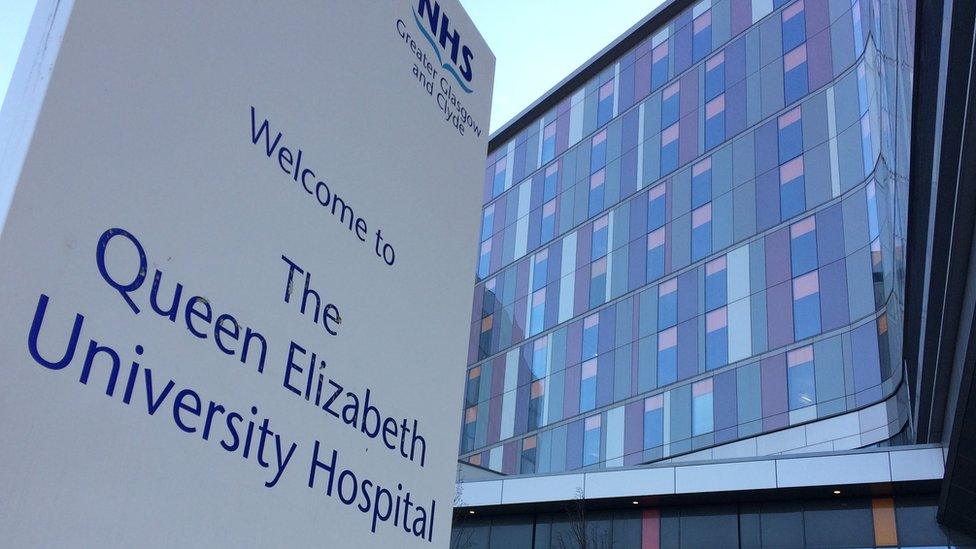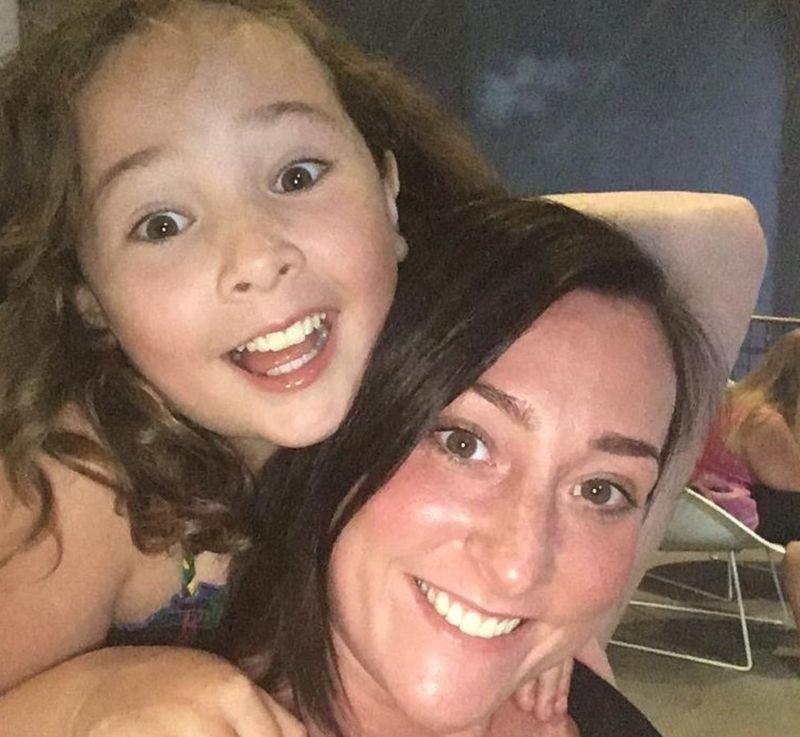'Serious failings' over Glasgow hospital infections
- Published

Water contamination at Queen Elizabeth University Hospital has been linked to child cancer deaths
Health board chiefs have been criticised for failures over infection prevention at the Queen Elizabeth University Hospital (QEUH) in Glasgow.
An independent review, external found 84 children were infected with rare bacteria while undergoing treatment, with a third suffering a severe health impact.
NHS Greater Glasgow and Clyde apologised for the distress caused.
Health Secretary Jeane Freeman said the report highlighted "serious failings" at the health board.
She added: "Patients and their families should not feel unsafe in our hospitals, and staff should not be afraid to speak out as whistle-blowers if they have serious concerns.
"These findings, do not fault the quality of care provided by frontline staff, but they do highlight serious failings at health board level.
"Efforts have been made to improve and adopt the culture of transparency, openness and clinical leadership.
"We will continue to work closely with the board to ensure these are demonstrably embedded."
The review was commissioned by the health secretary as part of wider investigations into problems with drainage and ventilation system at the £850m QEUH campus, which includes the Royal Hospital for Children.
Led by Professor Mike Stevens, it investigated 118 episodes of serious bacterial infection in 84 children and young people who received treatment for blood disease, cancer or related conditions at the hospital.

Milly Main died in August 2017 after treatment on the QEUH Campus
It found a third of these were "most likely" to have been linked to the hospital environment. Two out of 22 investigated deaths were also considered, in part, to be a result of infection.
NHS Greater Glasgow chief executive, Jane Grant, said: "For families, children and young people, undergoing cancer treatment is already an incredibly difficult situation and I very much regret the additional distress caused.
"Whilst we have taken robust and focused action to respond to issues, and at all times have made the best judgements we could, we accept that there are times when we should have done things differently."
BBC Scotland told last week how an infection "probably" linked to Glasgow's children's hospital was the "primary cause of death" of a young cancer patient.
Among the cases reviewed was 10-year-old Milly Main, who was making a good recovery from Leukaemia when her Hickman line - a catheter used to administer drugs - became infected.
'Devastating report'
Milly went into toxic shock and died in August 2017.
Prof Mike Stevens said he hoped the review would "assist families in understanding the background to the infections experienced by their children".
He said it would offer a way to reduce future risk by improving infection prevention and control.
The review panel made 43 recommendations, including improvements to environmental surveillance and how water sampling and testing is used.
Individual reports will be prepared for the families of those patients affected by the infections at the QEUH and they will also have the opportunity to meet with a member of the panel.
Scottish Labour leader, Anas Sarwar, praised "the bravery of NHS whistle-blowers who spoke out" over their concerns about the hospital.
He said: "This is a devastating report which will be incredibly painful for families to read."
He called on the Scottish government to "ensure we now have a robust public inquiry and deliver the fatal accident inquiry that Milly's family deserve."
Scottish Liberal Democrat MSP Alex Cole-Hamilton said the deaths at the QEUH were "an absolute tragedy".
He added: "Now we need lessons to be learned so that no more patients are put at risk"
Scottish Conservative health spokesman, Donald Cameron, said a hospital culture "sorely lacking in communications, governance and planning" caused infections out of control.
He said: "I hope the families and young people caught up in this avoidable disaster can now find some closure after being put through so much unnecessary pain."